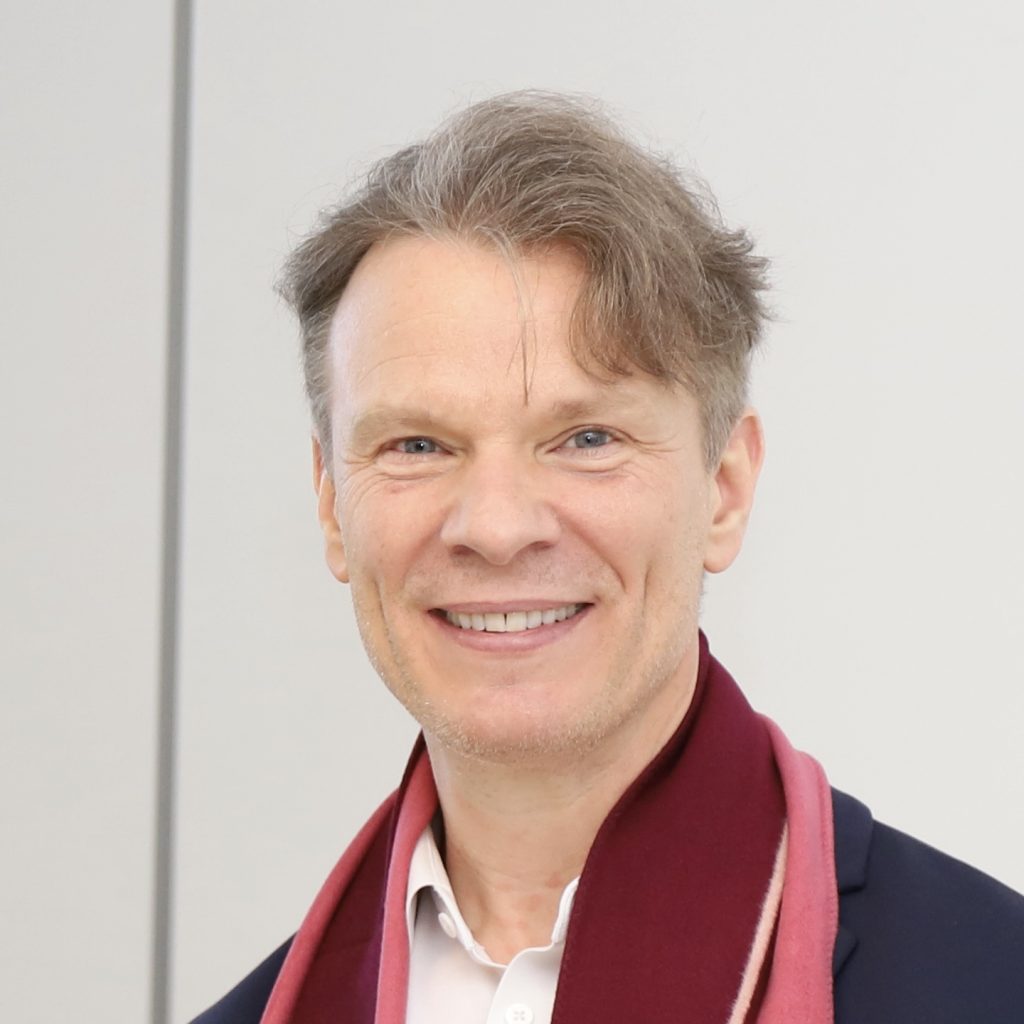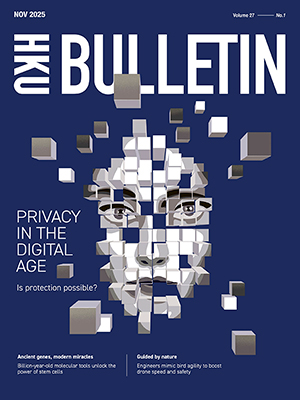May 2025 | Volume 26 No. 2
Arts Faculty Launches Tech Lab
Listen to this article:
Large language models (LLMs) are the bedrock for generative artificial intelligence, but most of the focus on them has been from a computing perspective. Yet LLMs have their origins in language, a topic normally related to the arts, not computer science.
Linguists and literature experts all play a role in the development of LLMs, from informing how language is constructed to discerning meaning. Moreover, arts and humanities research can also reap major benefits from using AI.
With this in mind, the Faculty of Arts formally launched its Arts Tech Lab in December 2024 to train students in digital humanities and promote the use of technology in research. The Lab offers advanced facilities ranging from a 4D scanning room to an immersive extended reality space to a research computer laboratory. It also has space for seminars, training and workshops.
“Our vision is to be a hub and catalyst where like-minded scholars and students can benefit from cutting-edge technology and equipment and build meaningful networks with people who have special expertise,” said Dean of Arts, Professor David Pomfret, who chairs the Arts Tech Steering Committee and has been the catalyst behind its formation.
The Lab has been in development for more than a year, alongside new teaching programmes focussed on digital humanities to be launched in September 2025.
New degree programmes
A new double degree programme Bachelor of Arts and Bachelor of Engineering in Artificial Intelligence and Data Science will be offered that combines humanities with AI and data science. Students will receive technical training as well as explore philosophical and ethical issues associated with AI usage.
The Bachelor of Arts in Global Creative Industries will train students with an entrepreneurial bent to apply humanities perspectives in fields such as gaming and film (for instance, by drawing on their insights about storytelling) and give them practical advice on setting up and managing their own start-ups. The programme builds on a major currently offered under the School of Modern Languages and Cultures.
These two programmes are clustered with a third, the Bachelor of Arts in Humanities and Digital Technologies, which had its first intake in 2022 and focusses on applying technologies to such subjects as history and English. For instance, LLMs could be used for ‘distant reading’ to discern patterns and trends across everything from a single literary text to an entire genre of literature. Or it could be used in history to map familial connections and relationships across entire dynasties.
The Arts Tech Lab’s co-ordinator, Dr Jenny Kwok, is working with LLMs to discover their potential and limits in understanding literary narratives and nuances as compared with human capabilities. “Computational advances now give us this macroscopic ability in humanities research,” she said.
In addition to promoting learning and research,the Faculty is also keen to help students develop entrepreneurial skills. HKU’s Techno-Entrepreneurship Core has been brought in to provide training and advice. The Faculty also provides seed funding to help both students and researchers launch initiatives.
Some projects are already getting attention. Music Entrepreneurship and Popular Practice is a new initiative led by Professor Rujing Stacy Huang of the Department of Music and industry experts. Professor Giorgio Biancorosso, also of the Department of Music, has a multidisciplinary project on holography and dramaturgy, involving experts in music, philosophy, engineering, mathematics and architecture.
Meeting place
The Arts Tech Lab’s hardware is an important enabling factor in this work, but Professor Pomfret said they also want it to be a space for bringing people together. Three new programmes have been launched to achieve that. One is the Transformations: Lecture Series, which invites top humanities experts from both academia and industry to share their latest findings and experiences in using technology in research.
Second is InnoArts, which offers hands-on workshops and training sessions, including accredited ones, for both students and teachers. For instance, in January 2025, a scholar from the National University of Singapore taught students how to fine-tune a large language model – a skill in demand globally. Students received a digital certificate to verify their participation.
Third is AI+Teaching, which provides training and workshops for teachers on the pedagogy and practical application of the latest technologies in teaching and learning.
The Lab also hosted the inaugural conference of the Hong Kong Association for Digital Humanities, attended by more than 50 scholars from around the world. People from other disciplines and jurisdictions are also welcome to use the lab space and engage with the Faculty’s students and scholars.
“We are here to support humanities scholars and students who want to advance their visions with technology. Yes, there are other AI initiatives on campus and beyond, but we distinguish ourselves from them because humanities remains at the core of the Lab and also the Faculty of Arts,” Professor Pomfret said.
Our vision is to be a hub and catalyst where like-minded scholars and students can benefit from cutting-edge technology and equipment and build meaningful networks with people who have special expertise.

Professor David Pomfret

